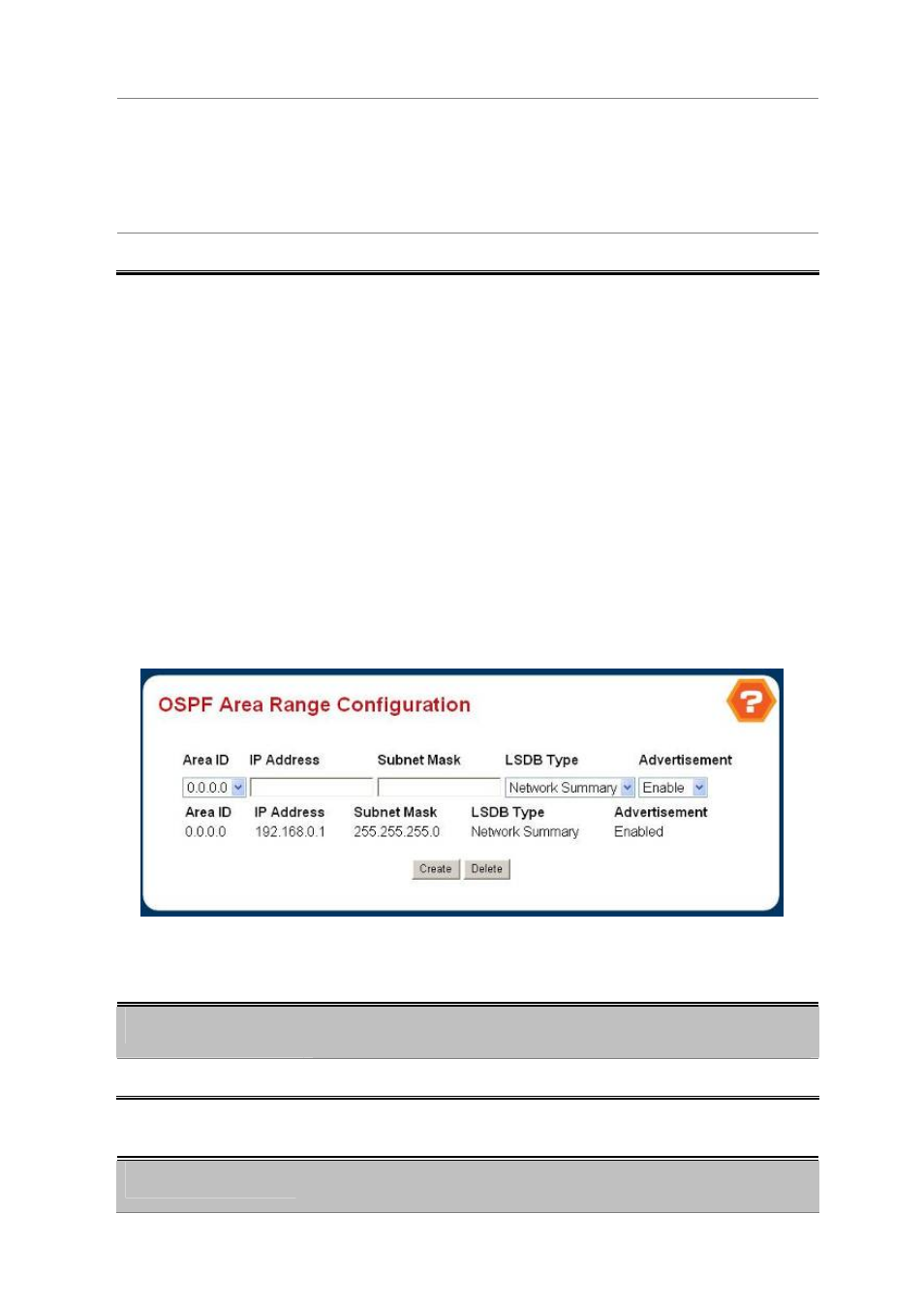PLANET WGS3-24240 User Manual
Page 269

User’s Manual of WGS3-24000 / WGS3-24240
269
•
Comparable Cost - External Type 1 metrics that are comparable to the
OSPF metric
Non-comparable Cost - External Type 2 metrics that are assumed to be larger
than the cost of the OSPF metric
• Import Summary LSAs Whether the import of Summary LSAs is enabled or disabled.
4.6.4.5 OSPF Area Range Configuration
After you configure an area identifier, you can specify a subnetwork address range that covers all the individual networks in this
area. This technique limits the amount of traffic exchanged between Area Border Routers (ABRs) by allowing them to advertise
a single summary range. By summarizing routes, the routing changes within an area do not have to be updated in the backbone
ABRs or in other areas.
To optimize the route summary, first configure all the OSPF routers in an area so that they fall within a contiguous address range.
The route summary consists of an address and mask, where the mask can be a Variable Length Subnet Mask (VLSM). Using
VLSMs allows you to configure each subnetwork within a larger network with its own subnet mask. This provides a longer
subnet mask that covers fewer host IP addresses, thereby reducing the size of the routing tables that have to be exchanged.
(For more information on VSLMs, see RFCs 1219 and 1878.)
Figure 4-6-22 OSPF Area Range Configuration
Selection Criteria
Object
Description
• Area ID
Selects the area for which data is to be configured.
Configurable Data
Object
Description
